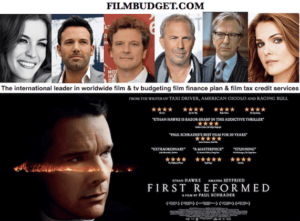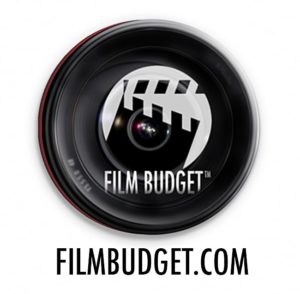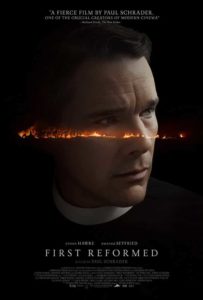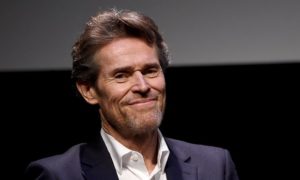
IFB Bild von der Bhne aus

IFB Bild von der Bhne aus
Sometimes you go back to your roots and venture into low budget filmmaking as an A-List producer. Having just done that I share some facts that emerge as key differences between big film budget and low budget filmmaking.
The biggest difference is time of course. Time is money and crew time is even more money. What a large film budget allows the filmmaker is the time to prep and shoot.
Prep time is critical in filmmaking of any scale. “It’s all in the prep” is a common catchphrase and it could not be more true. Quality prep time is absolutely fundamental. I always say, “if you see me running around like a chicken with my head cut-off on the set, I messed up months ago!” But I don’t say messed!
A truncated prep (preparation) period can be very problematic as everyone is rushed to do their work in time for filming. The best deals require space and research, as the time required for negotiating and weighing options vastly effects the value and cost savings which can be achieved.
Shooting Days are the key to a quality production as well. The more time and money you can allot to more shooting days will not only make the director more confident and able to achieve the goals of the production, it likewise affords the actors their space to create their performance.
As film budgets have decreased due to market constraints producers and directors have been required to reduce the amount of shooting days as a way to keep the budget down. The upside is we are getting more adept to shooting faster however the downside is it demands an extremely fast paced film production period which can be hampered by a likewise reduced prep period.

Stars of Films Produced by FilmBudget.com Producer Jack Binder
Locations are another fundamental area the demonstrates the difference between big movie budget productions and lower budget indie films. With more funding both time and expense can be used to obtain the best locations with ideal situations. On the contrary, low budget indie film production calls for getting by with less production value (unless the producer and director are extremely adept at mitigating this downside) and support areas.
Often it is easy to acquire a great deal on a location – via a friend, relative, colleague, etc., however it’s often the hidden costs of support areas that comes back to bite the movie budget. Site support areas are often overlooked. These items include: Artist Holding areas, catering area, location production office, the “vanities” – Hair and Make-Up Stations, Wardrobe Department, Art Department and of course Locations and Parking!
This is especially true in major cities, where parking is at a premium. Finding parking for the film crew in a big city is one of the most difficult aspects of indie filmmaking. Cities insist in their permitting that crew cars are not on local streets. Renting a Lot is expensive. With a large film budget and more resources this is not an issue nor a concern. For low budgets, it’s a nightmare! One key takeaway lesson is to find all of these support areas simultaneously with your “free” location. You just might realize it was not as free as you expected!
Of course this all depends on the question of transportation, ie. Vehicles & Drivers. With the big Hollywood style productions, a fleet of very large vehicles with every amenity known to man can be found. This includes luxury gyms for the major movie stars, vast catering dining kitchens, vanity trailers and motorhomes, large grip and electric trucks, honeywagon production office and restroom facilities.
On a typical low film budget independent film though, this is certainly not the case! Any vehicle is a luxury, from Cube Trucks, passenger vans, personal cars, picture cars and Art Department Vans. Likewise the number of Drivers is limited which likewise puts a limit on production equipment vehicles. The upside is not having the requirement of closing down an entire city block to park the circus of mobile production vehicles. The downside is you must find everything you need within your location or nearby production support space. This can be quite costly although not as expensive as renting all of those vehicles and finding space to park them. We’re not even addressing the fuel to move them around!
So here are some of the perils, pros and cons of the big budget film and the low budget independent.
More to come….
One of the most important reasons film and television deals fall apart (and many things in business and life) is due to people do not get it in writing. I have seen so many deals go badly due to this one most prominent factor. Whether your are a producer, director, actor or screenwriter – you need to understand that this is the way things will go wrong most often.

Too many business people and artists most certainly, wish to rely upon the good will of the other party that they can depend on a deal coming through in the end. So often you will trust the person, a colleague, a friend, a family member, a reputable industry icon. Regardless of this assumption, things very often Do go wrong and this assumption falls to the wayside. People disagree on what was agreed, what was said, how much they said they would pay, how long it would take to pay/complete/deliver/assist, etc. Get it in writing!
An attorney is critical in venturing into a business deal. This is true for the film industry as well as business in general. Lawyers know the law, contracts, what is an agreement and what is not. An Entertainment Attorney is invaluable in saving you time, money and the heartbreak of a deal gone downhill.
On the contrary, a filmmaker (and business people in general) must be careful what they agree to in an email or letter. Written words matter and can be used at such time as a case is to be made on what was agreed between two or more parties. If you promise it in writing, you may be held to it. That’s why you want it in writing if you mean it and you wish to be in agreement. Ideally the other party will confirm your correspondence back to you, securing more protections.
This is an area of particular importance and urgency. As a producer, not having the rights secured to IP you wish to proceed to production with is a major faux pas! One must Not proceed on an assumption that a screenwriter will agree to terms at a later date. Likewise, as a screenwriter one must not assume the producer will come to agreement on terms that you will find acceptable.
No matter how good their intentions, now matter how good of a person someone is, things change, people change, events change. Once you have a written agreement, these situations can be addressed under the terms of the agreement, or negotiated externally to a contract as otherwise required.
A good deal is a deal where both parties “win”, the ol’ “win, win”. It’s great to be trustful but it doesn’t get you far in the real world of making deals. Get it in writing!
Good luck in filmaking!
Jack Binder – Film & TV Producer – Visit Jack’s Producer Credits Page – Click Here
Producer, Founder FilmBudget.com Worldwide

FilmBudget.com Worldwide The Film Budget Company
Major Hollywood Studio Line Producer Jack Binder
Your film budget is critical for success and a reflection upon you, the filmmaker and your team. A professional movie budget is critical to obtaining film finance, production and distribution for your film.
In the world of film finance and movie production the figures are more significant then ever. The details and reliability of the figures created in your movie budget by a veteran line producer are critical to the success of the film you are setting out to make.
What is often not appreciated is the compounding nature of those numbers which can lead to make the financing elements largely in error.
As the basis for the funding equation which goes into the packaging of the equity, pre-sales, debt and gap financing elements to finance your film, your movie budget is enormously important in that it be accurate and all inclusive.
Likewise the quality of the line producer’s credentials, associations and experience a filmmaker chooses to engage to create their budget lends significant value to your film stature, finance plan and the funding package overall.
The importance of having a film budget and schedule created for your screenplay for potential buyers is widely known and accepted in sophisticated film finance circles. So much so, that it is the first question asked when a project is submitted: “can you send us your budget?”
FilmBudget.com is the international leader in worldwide film budget and schedule production services, and creates accurate and proven film budgets for filmmakers.

First Reformed Produced by Jack Binder & Killer Films
The benefits leading to your script being picked up by someone having already been budgeted and scheduled, the advantages are numerous. For one, putting forth the effort to create a film budget and shooting schedule for your film production immediately sets your script ahead of the ones whom have not taken this key step.
Knowing the cost of producing a film is critical to obtaining financing and distribution. Being able to articulate to an interested party how much funding will be required to produce a film enables them to make multiple decisions which they would not necessarily be bothered nor able to entertain with a screenplay alone, for which one presumes they might receive literally thousands.
Additionally, this effort and resourcefullness demonstrates initiative on the part of the writer/producer/director to ascertain the fundamental fact of the film production: the cost to produce the film.

Further to this point, knowing the cost of the film production overall and where it will be shot, aids in determining what film tax incentive amount the filmmakers might expect to receive from local government institutions, funds, grants, etc. Knowing the budget of the film enables a buyer to be able anticipate what type of foreign sales (advances) they might be able to expect as well.
This all leads to potential purchasers to able to figure what amount of equity, or hard cash, will then be required on their part, or their financiers, to proceed to produce the film.
So knowing your cost of production sets you and your film apart from others submitting only a screenplay, as one which has made the effort to enable the key factors required to make an informed decision. It also conveys your commitment to getting the film made and willingness to have an understanding of the process of filmmaking, for the budget and schedule is a roadmap to the production.
It is a reflection upon you and your team that you have undertaken to understand how the film will be made by having a professional film budget and schedule created for you by a veteran line producer, for what you will then have, a package, not just a screenplay, to present and they, to investors and financiers.
Contact FilmBudget.com to obtain an immediate quote on our services, which include a finance and camera ready film budget and schedule package, film finance plans and film tax credit analysis and production consulting.
Follow us on:
PATRICK CANNELL – EVOLUTION OF A SCORE: THE TRAITOR
Back in December 2016, I was asked to jump onboard a new ship that had taken a rather sudden and drastic change of course.
A Ukrainian feature with a film budget of $1M attempted to depict the horrific events of the Russian occupation of Ukraine during the 1920s. The producers had summoned a renowned Ukrainian movie director in his late seventies to direct the picture, despite the fact that he hadn’t made a film in over 25 years. To the producers significant dismay, after a great deal of time and 80% of the film budget spent on this extravagant production – horses, battle scenes, vintage war vehicles, etc – they realized this was an unexpected sinking ship that they could not keep afloat.

Composer Patrick Cannell’s journey scoring ‘The Traitor’
The producers then asked if Bangkok-based American director Mark Hammond could save the ship from sinking. Nope. But after he encountered an alluring young Ukrainian actress, he came up with the idea to take the remaining $200,000 and create an entirely new feature, a drama/thriller, utilizing the best of the already shot 1920s footage:
1971. Odessa Film Studio, USSR. To conform to Communists Party revisionist propaganda, the KGB studio curator orders a re-edit of a recently completed film, directed by the studio’s iconoclastic star director, depicting the events of Ukraine 1920s ‘civil war.’ The re-editing work is entrusted to a young female editor, a recent graduate of the Moscow Film Institute. However, as her work progress, she comes to understand that despite the risks she must betray the Party to protect the director’s vision, and safe-guard the truth about her country under Soviet Occupation.
They shoot this new beast, and now we’re in December 2016. Time is of the essence, per usual. Mark, with whom I’ve worked before on a few projects, asks if I can bang out the score to this 90 min picture in a matter of days. If there’s a will, there’s a way.
I had 4 days with Mark and Andriy Suyarko, one of the producers, at my lab in Brooklyn, NY.

The first day, we went through the film. We agreed that live instrumentation was crucial to match the caliber of the visuals and sincerity of the drama. Cello, harp, bassoon. I scheduled a recording session at a larger studio nearby for the fourth day.
The second day I came up with a theme. It was time to elaborate on that theme and flesh out the score until the recording session some 48 hours later.
Fourth day – recording the main theme as I wrote it, letting musicians run wild with that theme, experiment freely based on scene and mood descriptions, and finally, playing the most cacophonous, aggressive, violent sounds possible on a cello, harp and bassoon that I would later affect for specific ethereal nightmare scenes.
I then took the goodies from this recording session and sprinkled them, weaved them, mixed them, distorted them, chopped them and built around them with electronic and orchestral sample libraries to produce a score worthy of serving the picture.
A week or so later, I recorded the cellist again along with a female vocalist to enhance certain scenes.
I then realized we had to start the opening montage off with a bang so I got some talented chaps into the same space to bring us into the 1970s with a bit of a modern twist:
Composer Patrick Cannell creates the score for ‘The Traitor’
Had $2,000 for the score from a challenging movie budget. Spent that plus a few hundred out of pocket. Well worth it.

Film, TV and Commercials Composer Patrick Cannell
Patrick Cannell is a working film, television and commercials composer based out of New York City. Patrick remains a much in demand talent due to his natural ability, quality compositions and his independent spirit in approaching new projects.
Contact Patrick Cannell: www.PatrickCannell.com
Follow Patrick:
Instagram: @patrick_cannell
Twitter: @patrickcannell
(c) 2018 FilmBudget.com
The Sundance Film Festival 2018 is underway! Filmmakers, studio, international sales, development and acquisition executives descend upon Park City for the annual famous film festival. Feature films, documentaries and short films of a wide range of film budget varieties are on offer and screening: one can view everything from a big budget studio movie to a low film budget indie production, all are on display as their creators mingle and pitch for their filmmaking success.
Sundance celebrates independent film and indie filmmakers in the spirit of storytelling in a beautiful environment dedicated to supporting filmmakers. In addition to the festival The Sundance Organization runs conferences on storytelling, screenwriting, directing and producing. They also have a television channel and a distribution outlet for theatrical feature film runs. Founded by actor, director, producer and environmentalist Robert Redford.
What: Sundance Film Festival 2018
Where: Park City, Utah
When: January 18-28, 2018
Press:
Sundance Film Festival Premieres Trailers
Sundance Announces Late Breaking Program Updates
(including Virtual Reality Work, Hosted Retrospectives)
The Berlinale and European Film Market (EFM) 2018

The first major event to take place in the New Year of major importance is the European Film Market (EFM) and The Berlin Film Festival. These events take place alongside each other.
What: European Film Market & Berlinale
When: February 15-25, 2018
Where: Berlin, Germany

These premiere events on the film calendar are crucial components in getting your movie produced and distributed. Attended by 21,000 professionals, 550 companies, the festival & market bring together decision makers, financiers, sales agencies & distributors dedicated to the European film industry.
Widely respected and actively working actor Willem Defoe will receive an Honorary Golden Bear. A retrospective of his work will be screened including ‘The Hunter’ following the award ceremony at the Berlinale Palast on Feb. 20th.

Willem Dafoe to Receive Honorary Golden Lion at Berlinale
Defoe has performed in over one hundred film productions.
His acting credits include:
With over four hundred films showing in the screening rooms and palaces, a wide range of film genres are represented.
The place for great international cinema
Features films intended for the youthful audiences
The German filmmaking world is on display in this dedicated forum
True indie film, artistic films which are experimental &avant garde in nature
The place for discovery of new filmmakers expressing themselves in the short film medium
Honoring the greats of cinema and their artistic works
Get your production ready for these events with a real film budget from FilmBudget.com
Contact FilmBudget.com to get your movie into production!
Happy filmmaking!